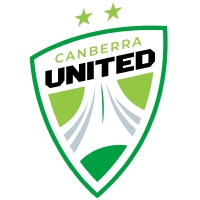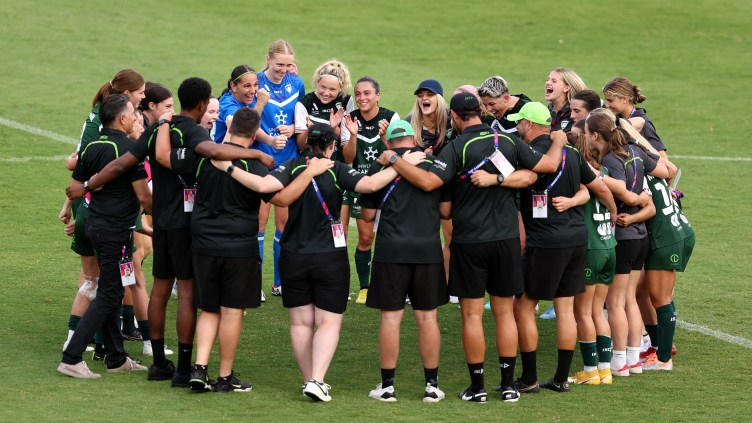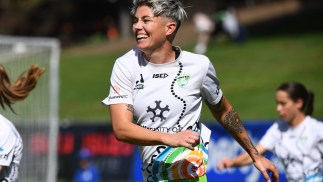For Canberra United’s new head coach, Ray Junna, the opportunity to coach women for the first time is a welcome one.
IN MORE than 10 years as an elite soccer coach, Ray Junna hasn’t coached a women’s team before.
But that doesn’t mean he doesn’t have a good understanding of what female athletes can do. After all, he married one of Australia’s greatest.
Kerry Saxby-Junna represented Australia 24 times in major international competitions, won 13 individual international medals, a record 27 Australian titles and set an extraordinary 32 world-record times.
At 38, after the birth of son Christian in 1997, she was the oldest athlete to win a medal at world-championship level in 1999.
In 2006, the Australian Institute of Sport selected her as one of its 25 ”best of the best”.
So despite Ray’s success in his playing career in the old National Soccer League and local ACT competitions, the Saxby-Junna trophy case is a little lopsided.
But when Junna starts to get his Canberra United squad together for the W-League’s second season, the standard will be pretty high.
”I think having seen me train, knowing what I put my body through,” Saxby-Junna said.
”There is no reason why women can’t do what men do.”
And while Saxby-Junna’s background in athletics doesn’t necessarily translate to knowledge in soccer, she and Ray have been impressed watching both the ACT Academy of Sport women’s team and women’s premier league games over the past few weekends.
”They are really good athletically, some of the girls are only 14 and 15, but they look like athletes already,” Saxby-Junna said.
On Canberra United game days this season, Kerry, Christian, 11, and Renee, 6, will be cheering on the sidelines as Junna steps into the first head coach role he’s had in almost 10 years.
Junna grew up in Papua New Guinea, where his mother’s heritage is, and moved to an Australian boarding school when he was 12.
He played soccer on the streets in Papua New Guinea, but not in any formal competition until he came to Australia.
He was one of the first soccer scholarship holders at the AIS in 1982 and 1983.
After finishing his playing career, he started as a scholarship coach at the AIS in 1995.
In 1998 and 1999 he was ACTAS’s head coach and for the past nine years he’s been an assistant coach at the AIS and helped mentor players like current Socceroos Lucas Neill, Brett Emerton, Vince Grella and Carl Valeri.
But Junna isn’t worried about that extra pressure that comes with the head coach role.
”At the AIS for most of the time there just used to be two of us, so you had to do both roles,” he said.
He is excited about the new challenge of helping women’s soccer grow into a more professional sport in Australia and bringing what he learned from the AIS to Canberra United.
”The philosophy at the AIS has built up a dynamic game, it’s about maintaining possession, it was very influenced by South American football,” he said.
”It’s a really exciting style of football.”




